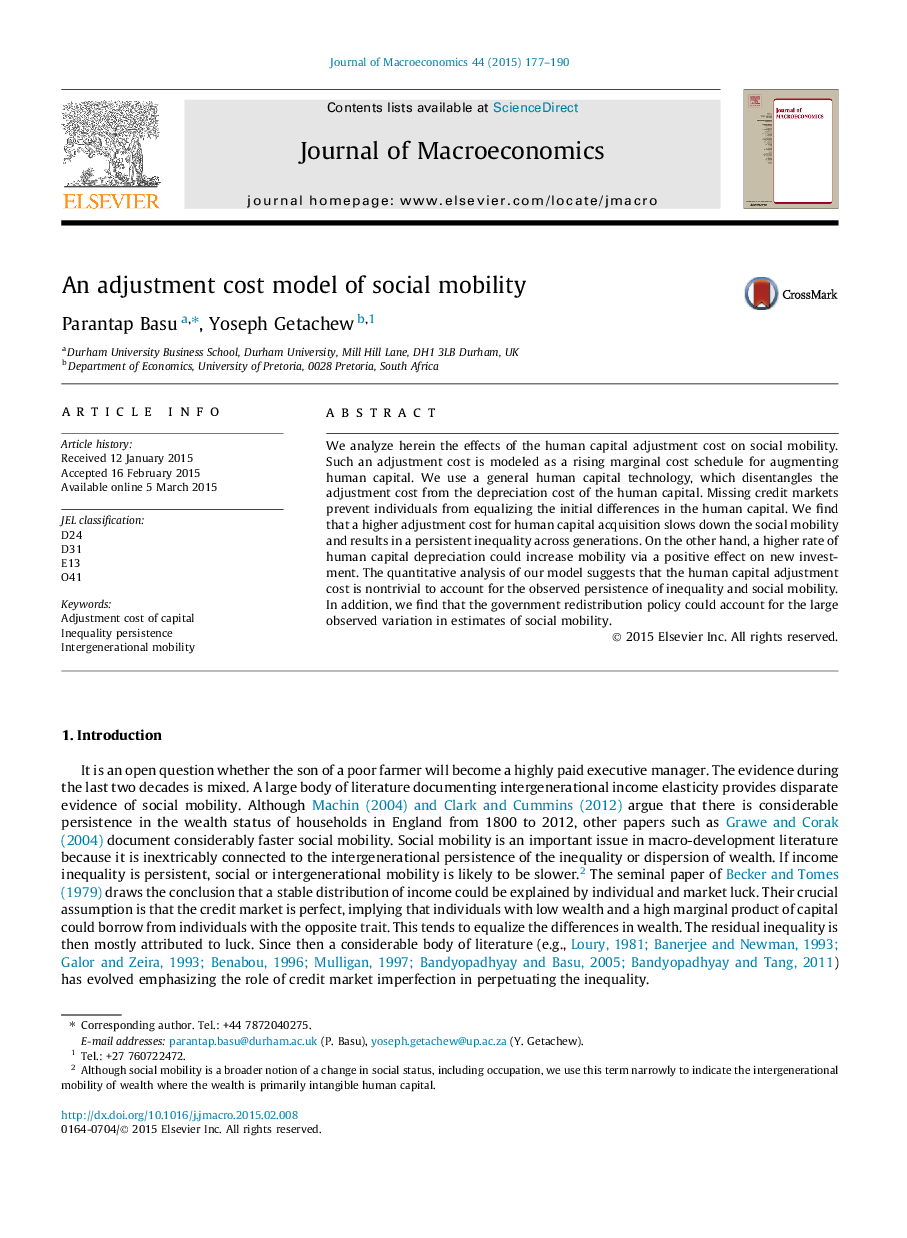| Article ID | Journal | Published Year | Pages | File Type |
|---|---|---|---|---|
| 7367125 | Journal of Macroeconomics | 2015 | 14 Pages |
Abstract
We analyze herein the effects of the human capital adjustment cost on social mobility. Such an adjustment cost is modeled as a rising marginal cost schedule for augmenting human capital. We use a general human capital technology, which disentangles the adjustment cost from the depreciation cost of the human capital. Missing credit markets prevent individuals from equalizing the initial differences in the human capital. We find that a higher adjustment cost for human capital acquisition slows down the social mobility and results in a persistent inequality across generations. On the other hand, a higher rate of human capital depreciation could increase mobility via a positive effect on new investment. The quantitative analysis of our model suggests that the human capital adjustment cost is nontrivial to account for the observed persistence of inequality and social mobility. In addition, we find that the government redistribution policy could account for the large observed variation in estimates of social mobility.
Related Topics
Social Sciences and Humanities
Economics, Econometrics and Finance
Economics and Econometrics
Authors
Parantap Basu, Yoseph Getachew,
